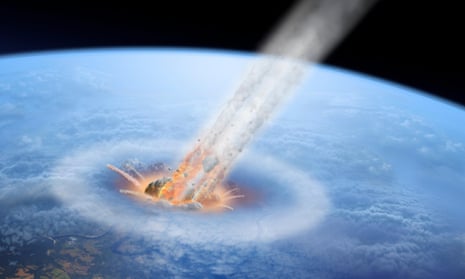As we move into 2015, many UK-based NGOs are wondering how to meet the challenges of a crucial year. What is the unique and distinct value that each organisation, and the UK sector as a whole, brings to international development, and how might this change in future?
To help the sector get on the front foot we have identified seven “megatrends” and posed a few questions to highlight some of the key choices NGOs might need to make. At the end of next week we’ll be concluding a consultation with DfID on the future of the sector – all your thoughts are welcome.
1. Climate change and planetary boundaries
As evidence mounts that the impacts of human-caused climate change are already upon us, the future of international development cannot be considered in isolation from the need to adapt. Furthermore the Earth’s natural systems are under enormous pressure, with huge consequences for the world’s most vulnerable people. As UNep’s 2012 Global Environment Outlook assessment concludes: “Scientific evidence shows that Earth systems are being pushed towards their bio-physical limits, with evidence that these limits are close and have in some cases been exceeded”.
2. Demographic shifts
The global population could reach 9.6 billion by 2050 and 10.9 billion by 2100. In 2000, for the first time, there were more people over the age of 60 in the world than children under five. By 2050, four-fifths of older people will live in developing countries, where 80% of them will have no regular income. Youth unemployment is also growing. In 2012, 15- to 24-year-olds made up 40% of the total unemployed population.
3. Urbanisation
Globally, more people live in urban than rural areas and this is expected to gather pace. But the urban transition is taking place at different rates in different parts of the world. By 2050 most northern regions are expected to be at least 84% urban. In contrast, even by 2050, Africa’s urban dwellers are projected to make up just 62% of its total, and Asia’s 65%. Even in Asia and Africa, though, rapid rural-to-urban shifts are taking place. Urbanisation is a key engine of economic growth, but with this comes the risks of social marginality, conflict and exploitation.
4. Natural resource scarcity
Demographic pressures create food and water insecurity, and supplies of non-renewable natural resources including fossil fuels are depleting. Scarcity could push prices up, creating further hardship for those most in need. Notwithstanding the current low oil price, from 2000 to 2013 metal prices rose by 176%, energy prices by an average of 260% and food prices by 120%. Depending on political responses, this may drive humanitarian crises, population movements and a rise in protectionist or nationalist policies.
5. Geopolitical shifts
In 2012, the Brics countries of Brazil, Russia, India, China and South Africa were reported as being responsible for more than 25% of the world’s GDP based on purchasing power parity and home to 40% of the global population. The axis of the world’s economic and geopolitical power has shifted – and will continue to shift – from west and north to east and south. Poverty patterns and distributions are changing alongside the wider geopolitical shifts, and donor policies are changing alongside them. Declining overseas development assistance to middle income countries and new donors entering the landscape are reshaping the nature of aid. Moreover, there is a risk that some growing political powers restrict the space for civil society action.
6. Processes of technological transformation and innovation
Technological innovation could have a very significant impact on the ability of people to meet their needs and to adapt to climate change. The world is becoming hyper-connected. Technological changes and the rapid diffusion of information and communications technologies, particularly among young people, have also broken down many of the old barriers between northern and southern publics. By 2030, it is estimated that 50% of the global population will have internet access. There is also growing appreciation of how technology links to human and environmental systems, escalating conflict or cooperation.
7. Inequality
Economic growth in at least 40 countries has helped to lift many hundreds of millions of people out of poverty. It is important not to allow rising GDP per capita in middle-income countries mask remaining underlying challenges – including rising inequality, weak social protection, poor infrastructures (particularly in urban areas), environmental degradation, and rising citizen expectations. Already, according to an Oxfam report, 85 billionaires have the same wealth as the bottom half of the world’s population. In 2012, 71% of the world’s population was reported to live in nations where income inequality is increasing. As well as stifling economic growth, inequality has a significant negative impact upon health and educational outcomes as well as security.
These trends will shake some of the foundations around which our past approaches to programmes and conversations with the public were built. If we don’t address these and show how we will evolve then the sector itself could be broken.
Over the next month the Global Development Professionals Network will be looking in more depth at these themes and their implications. Next Thursday’s live Q&A will be focused on how UK NGOs can face the challenges of the next 10 years. Email globaldevpros@guardian.co.uk to recommend experts for the panel.
Join our community of development professionals and humanitarians. Follow@GuardianGDP on Twitter.

Comments (…)
Sign in or create your Guardian account to join the discussion